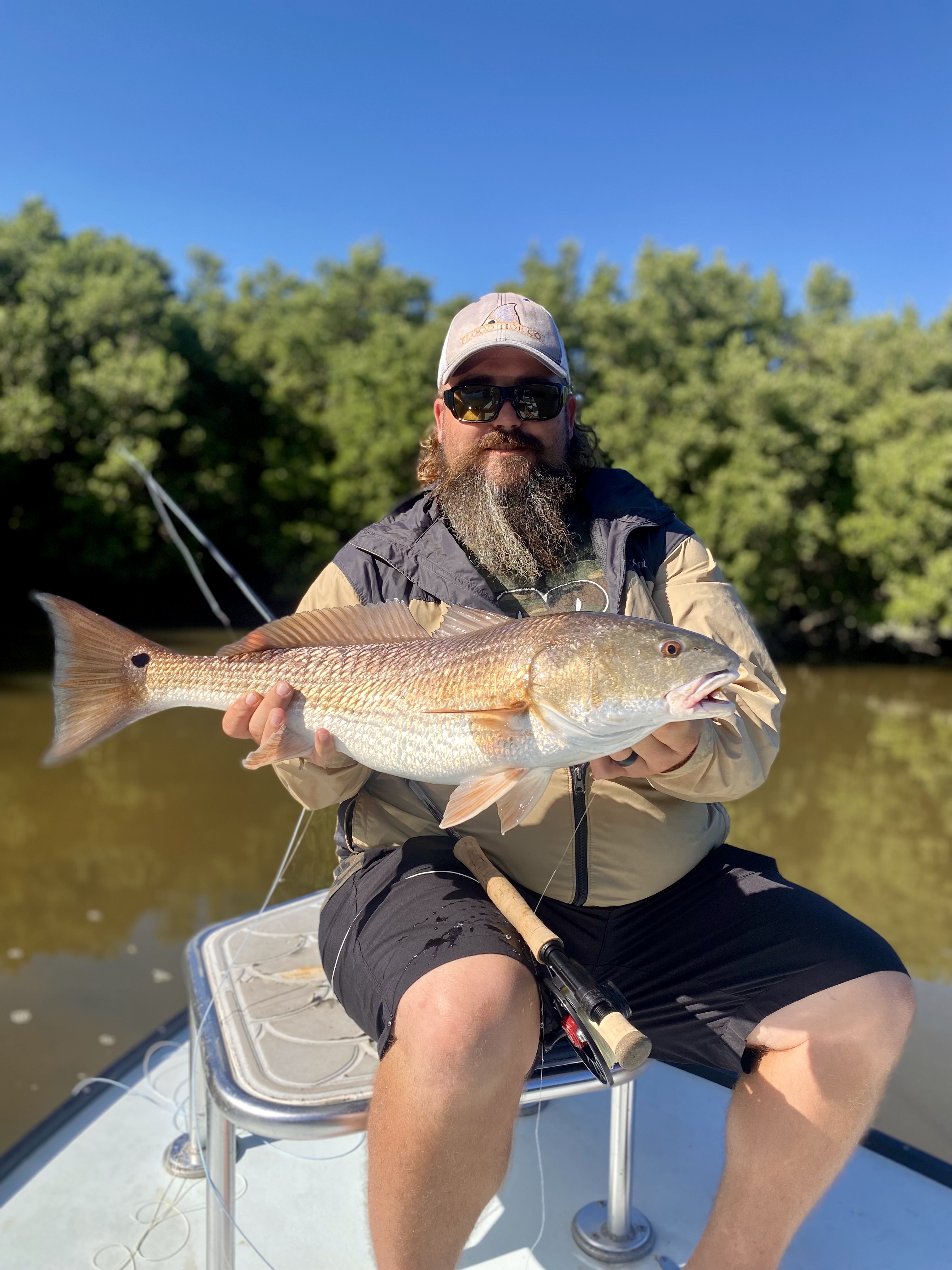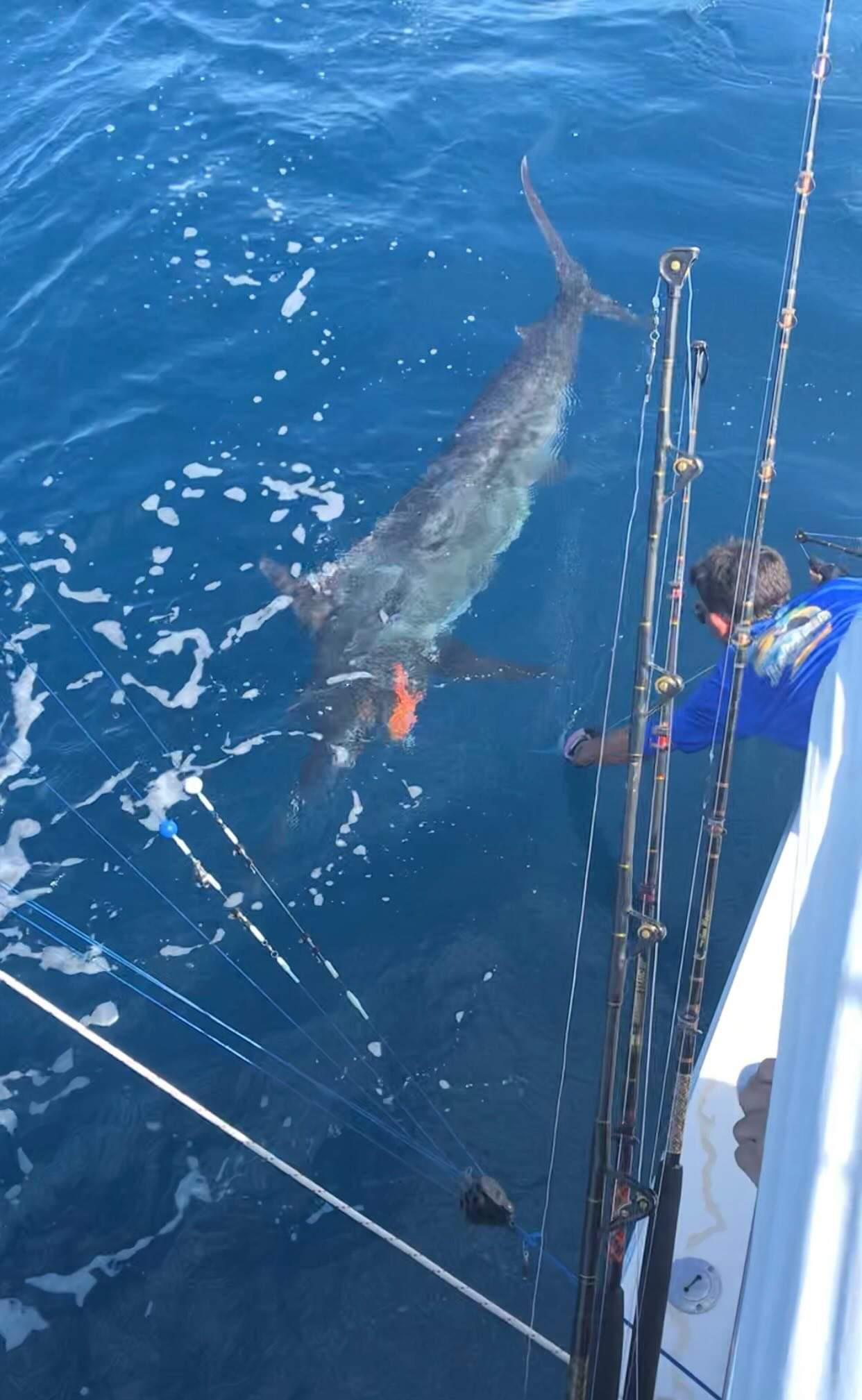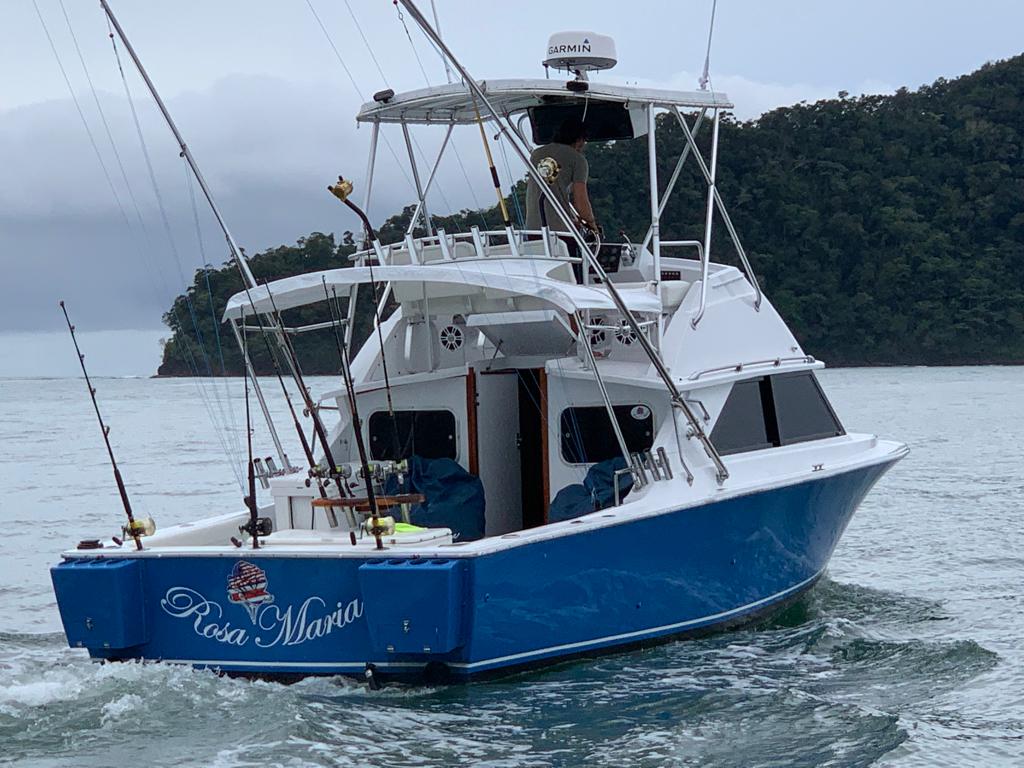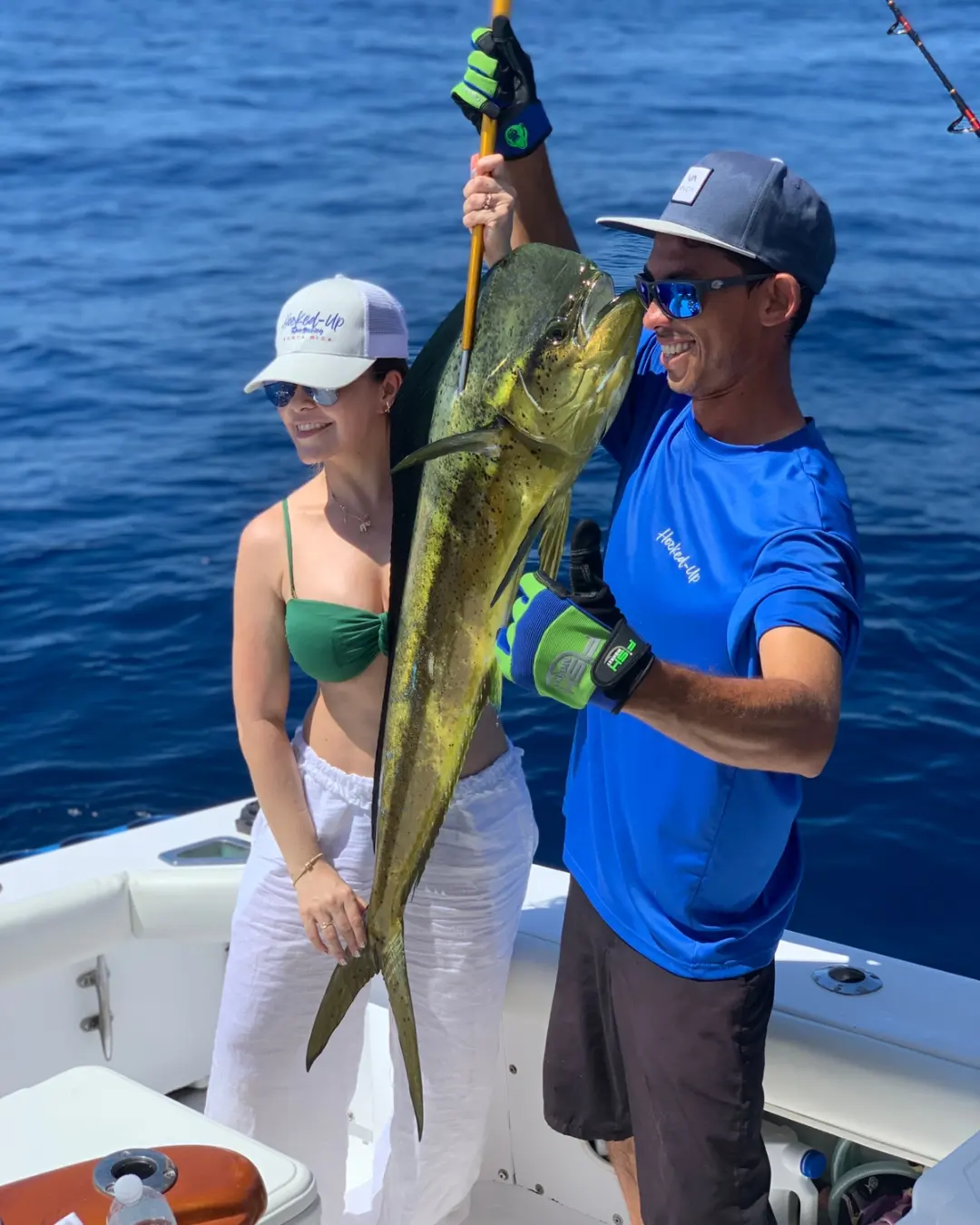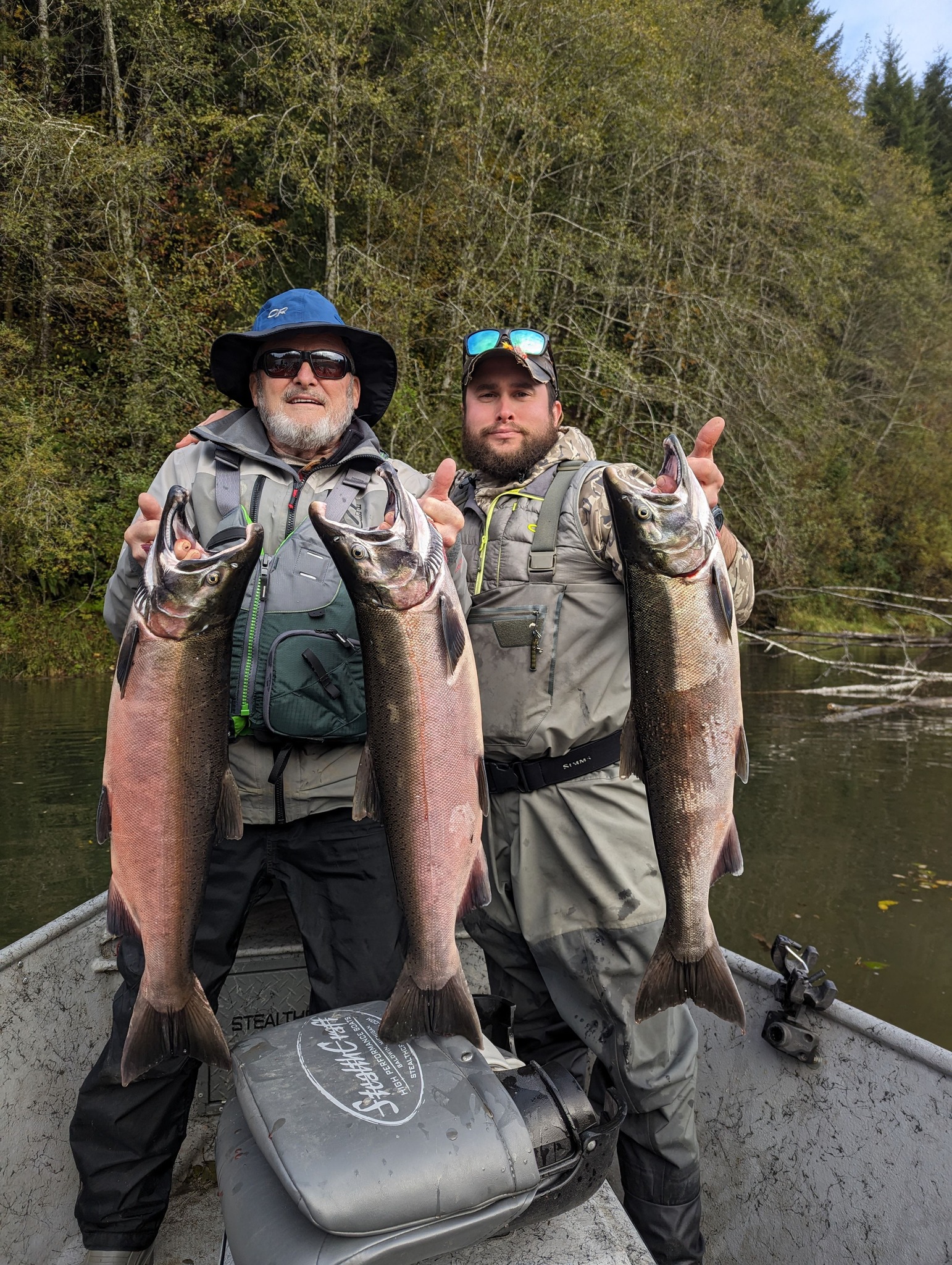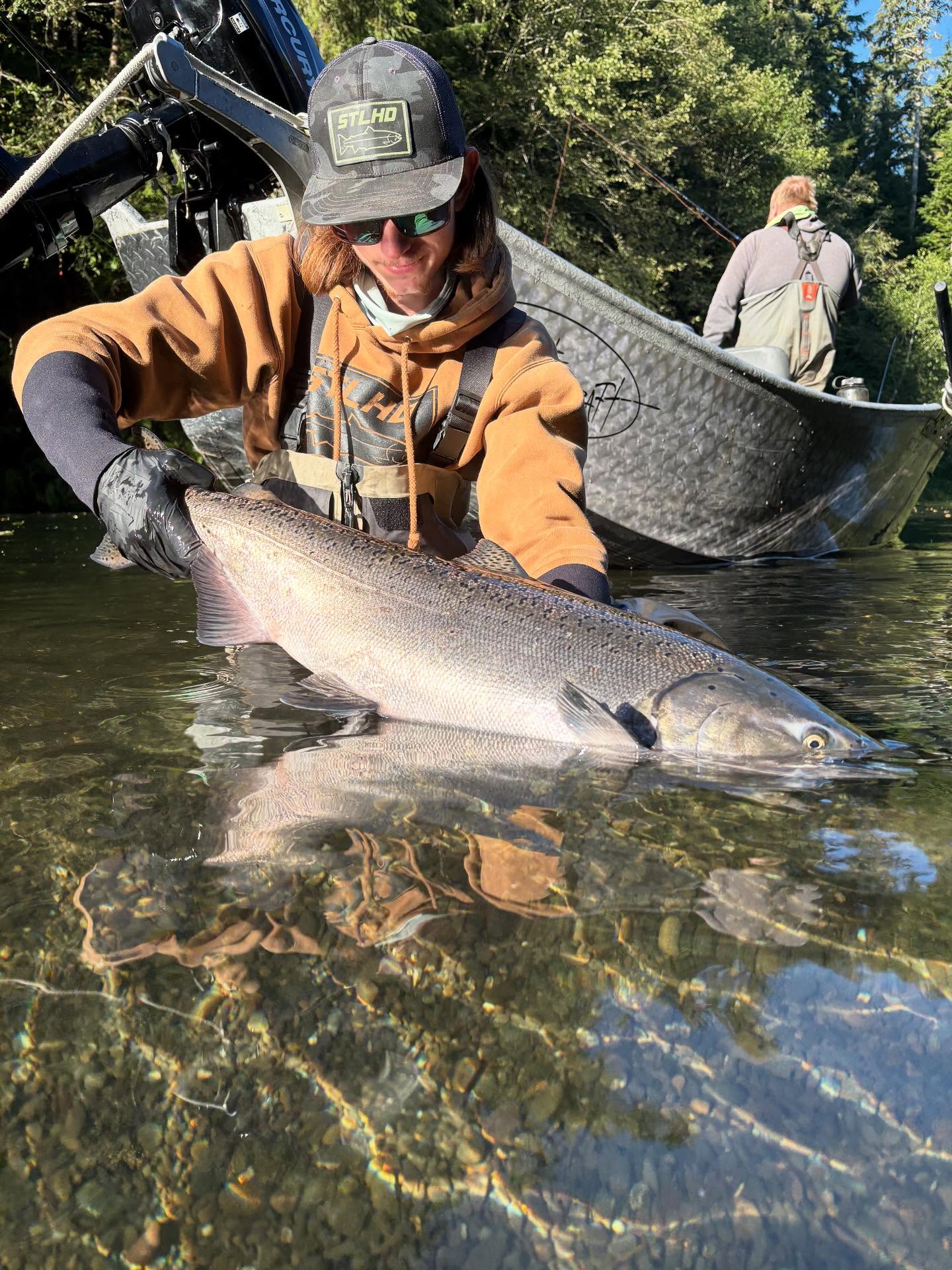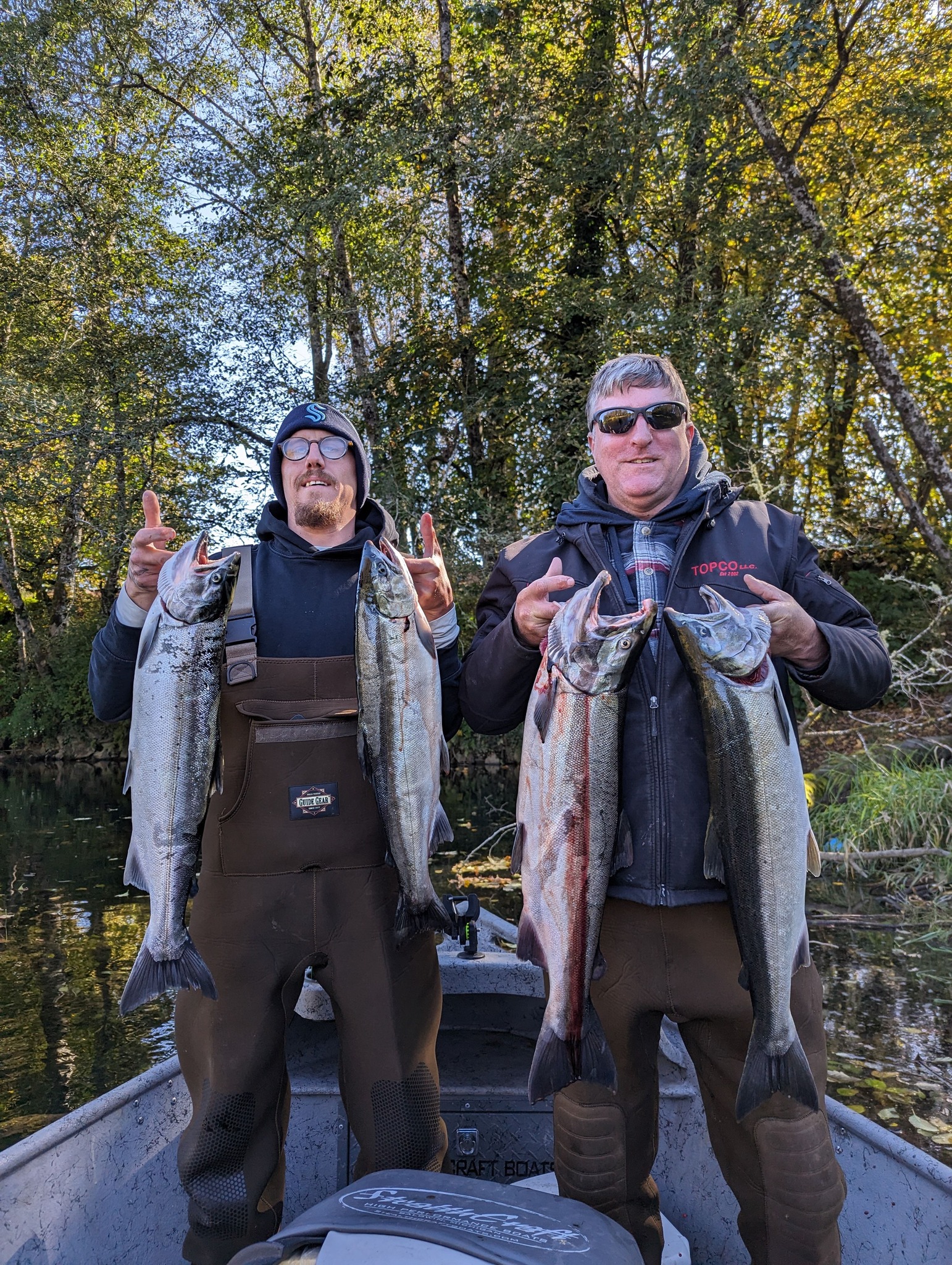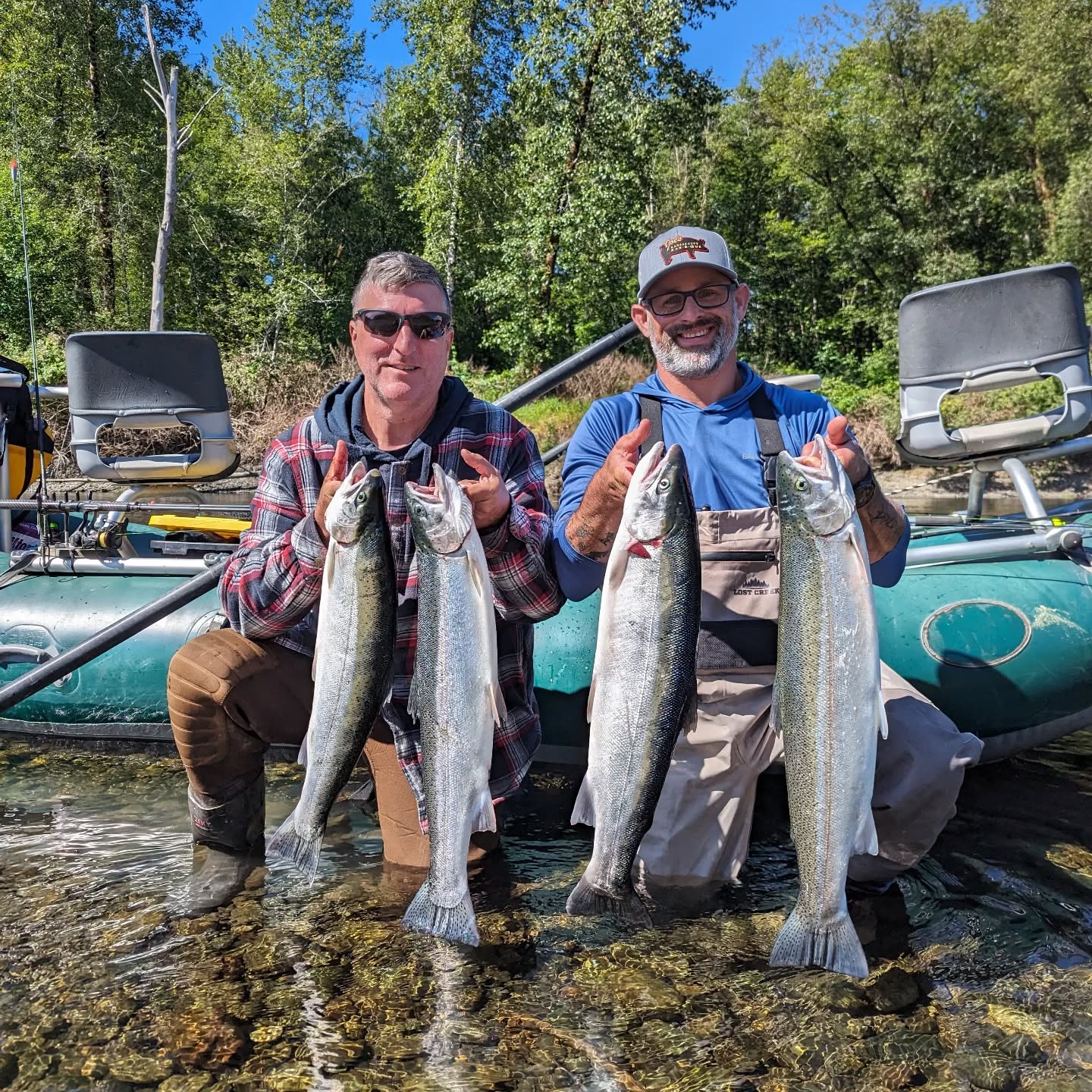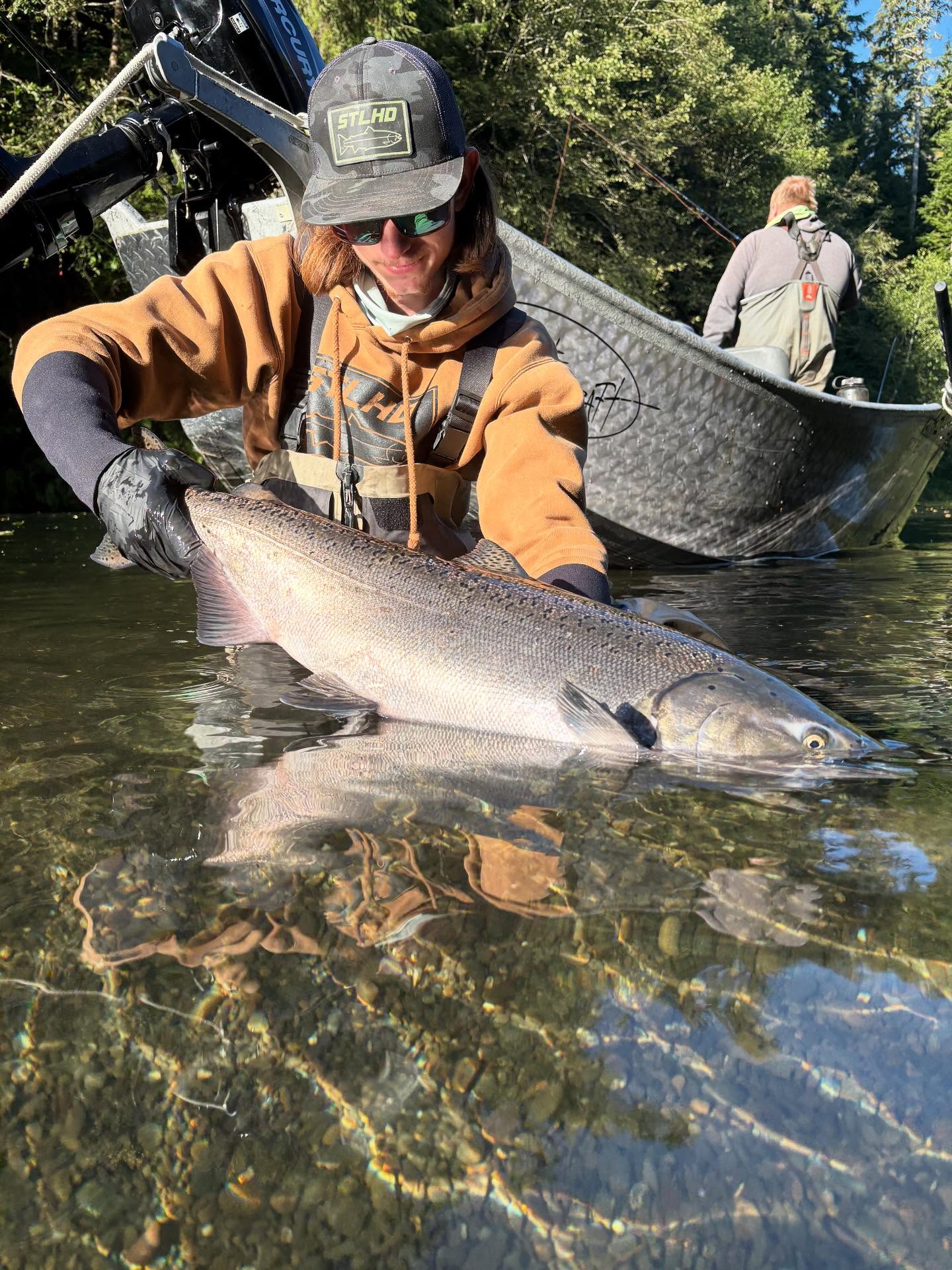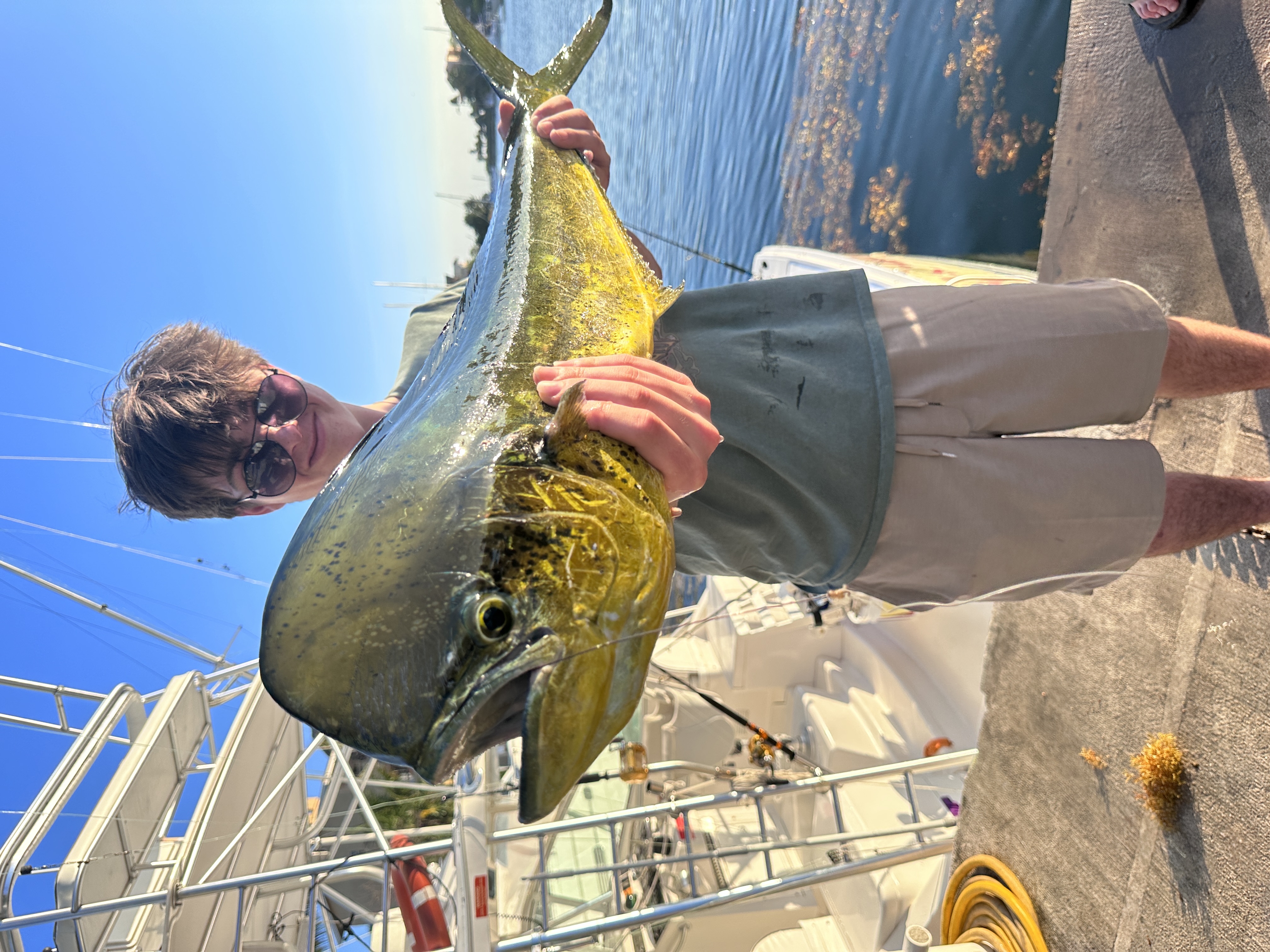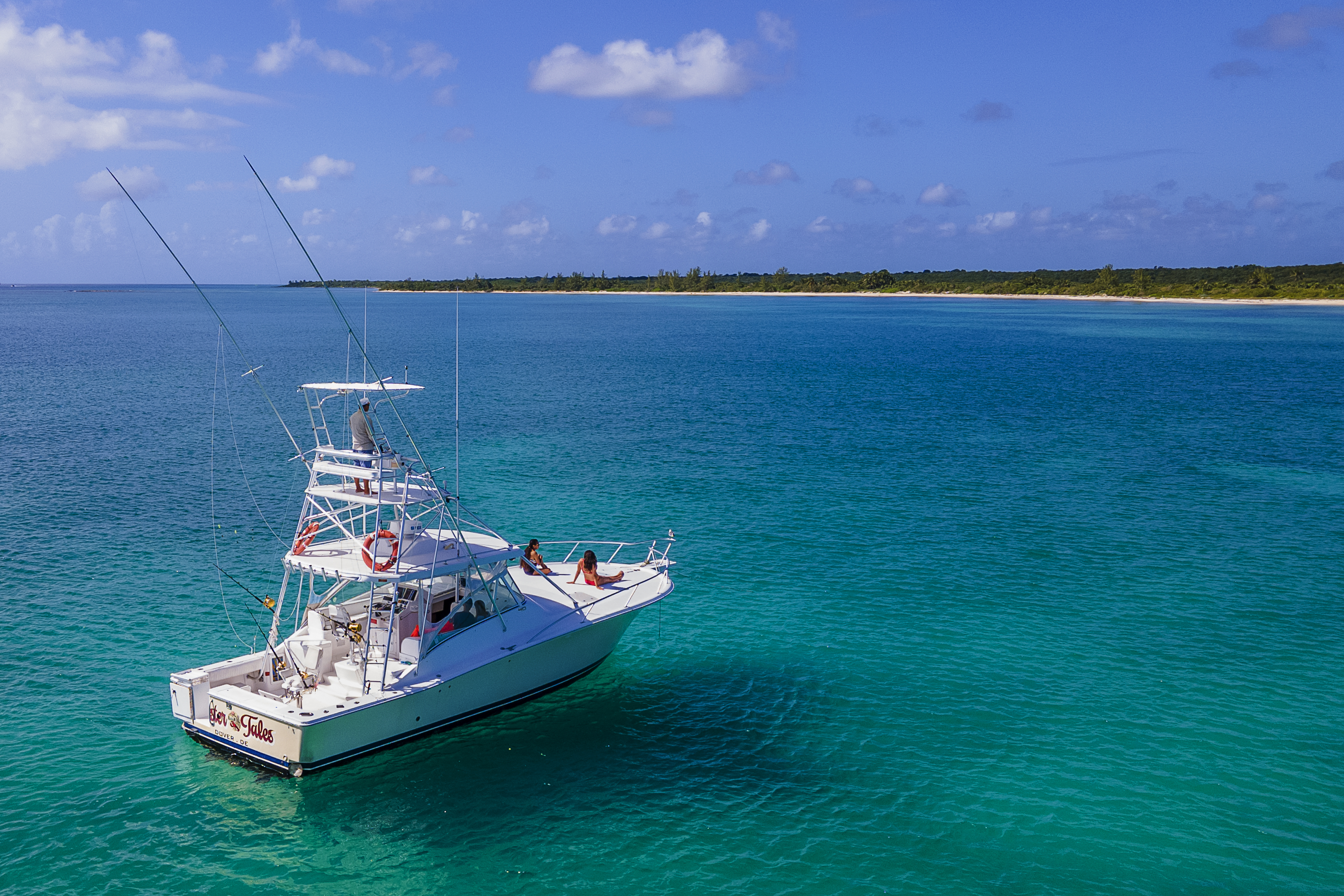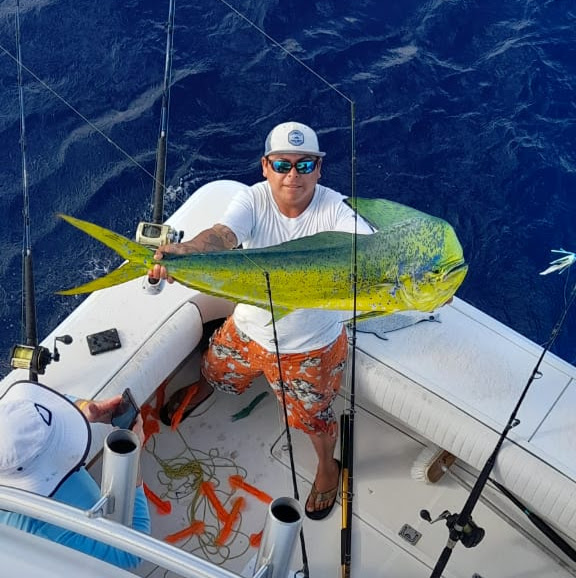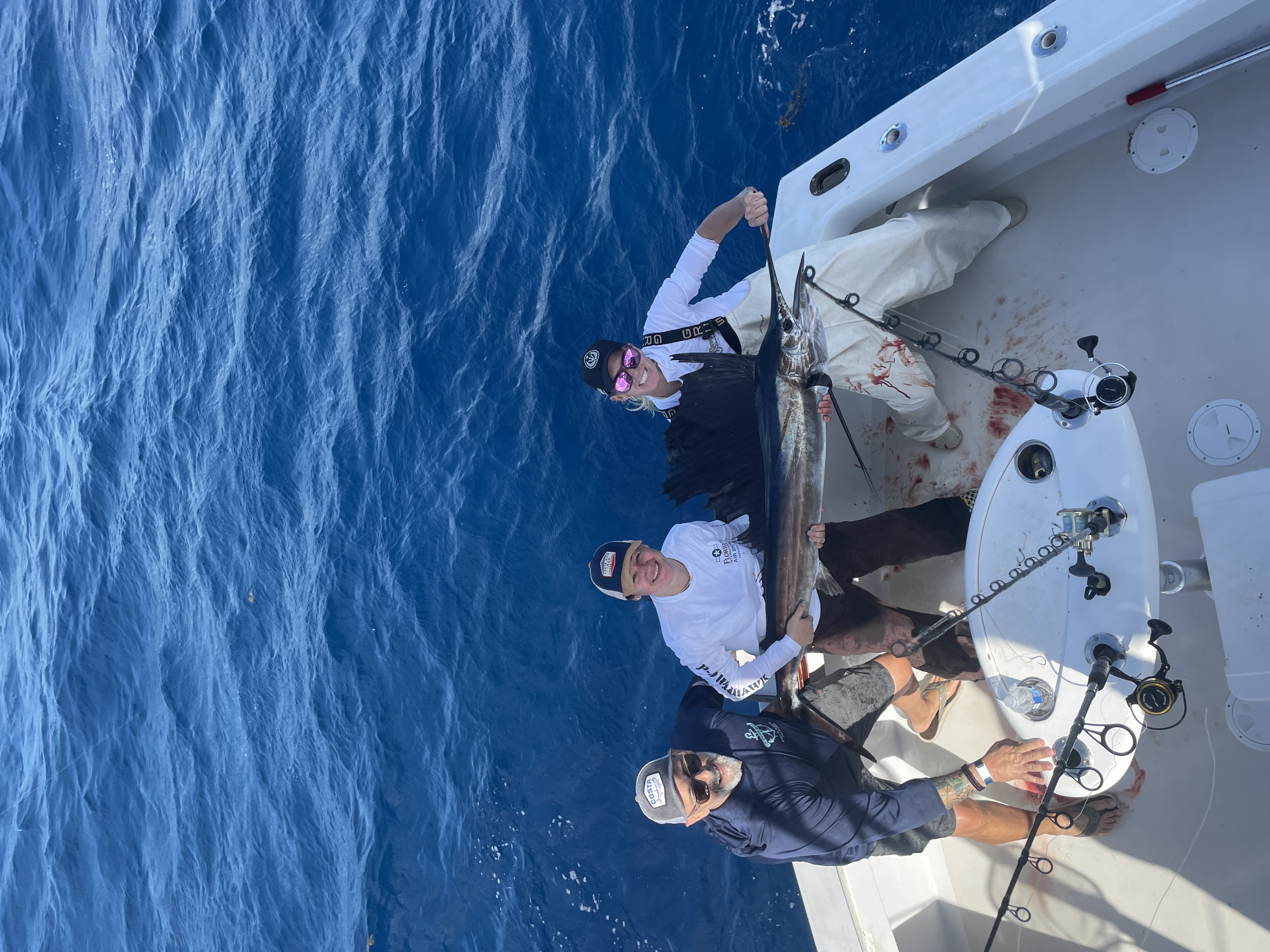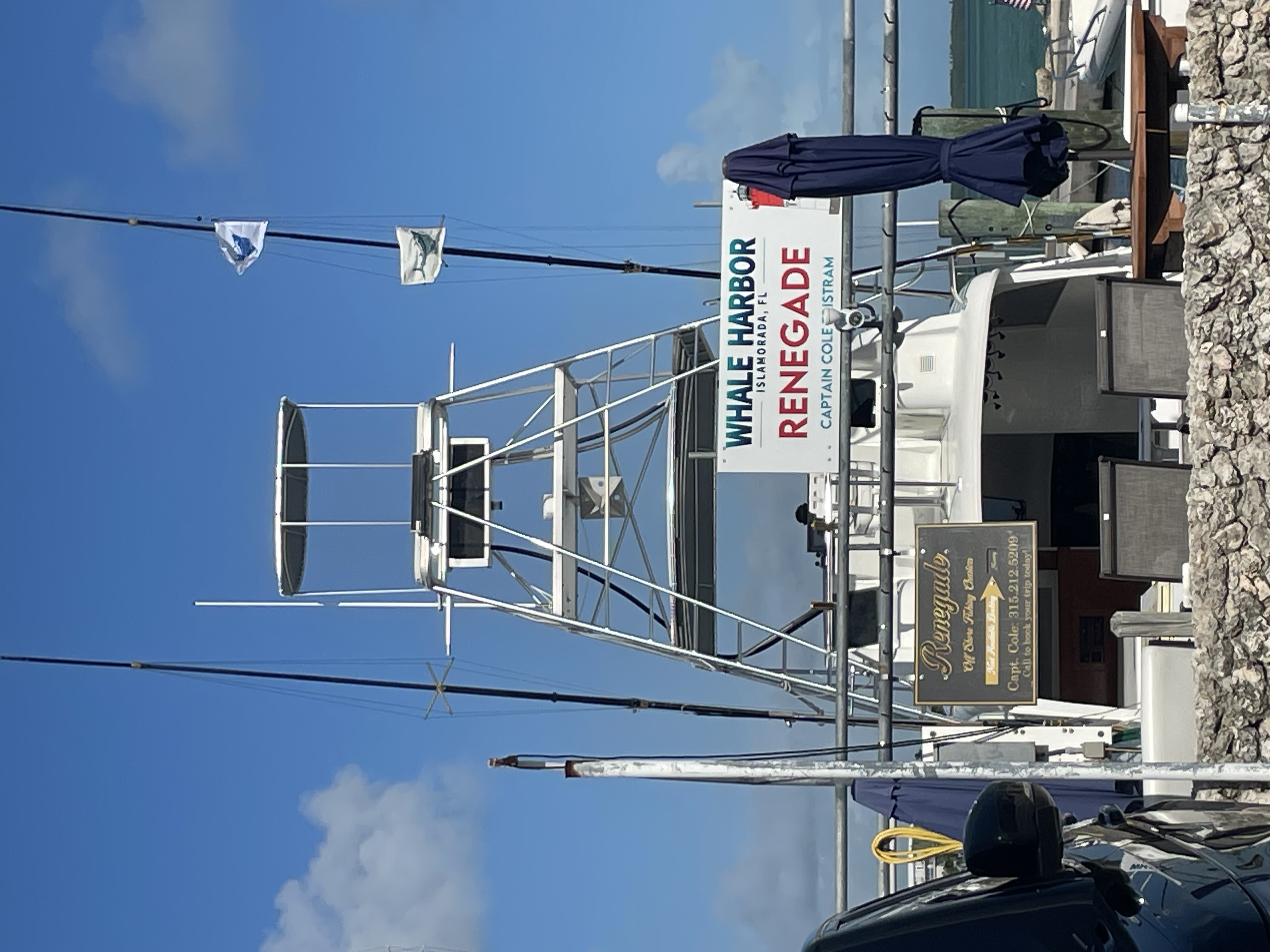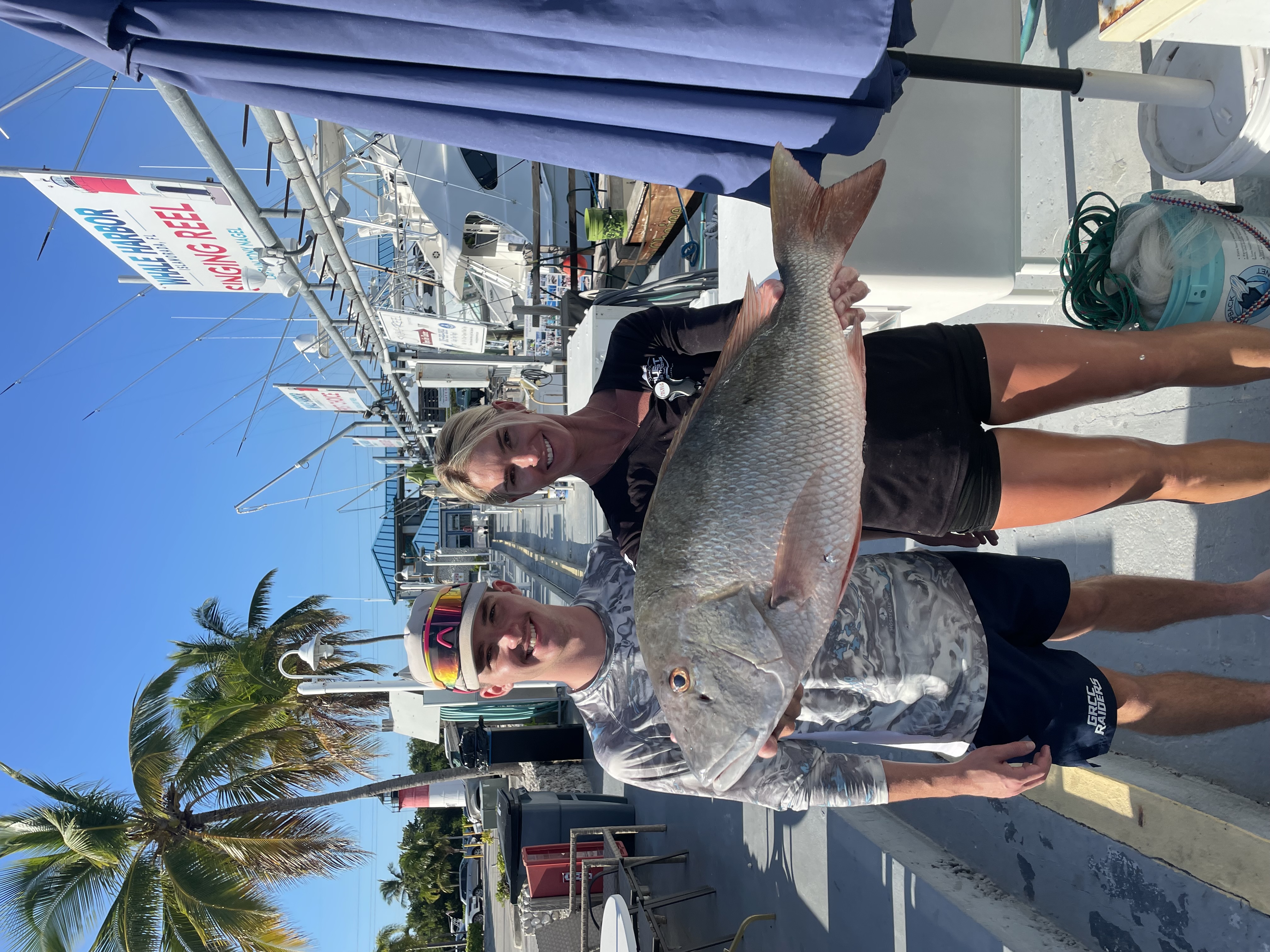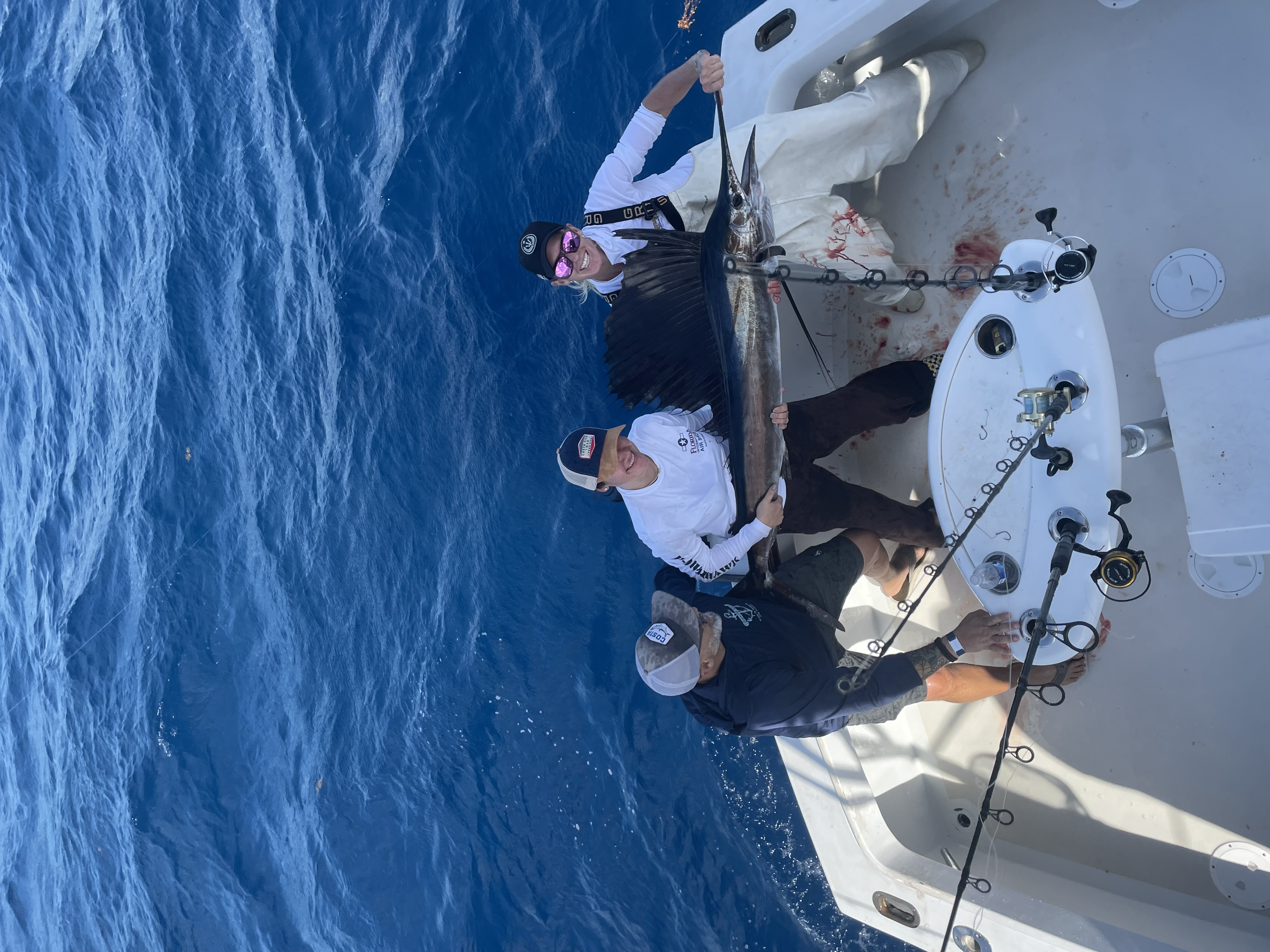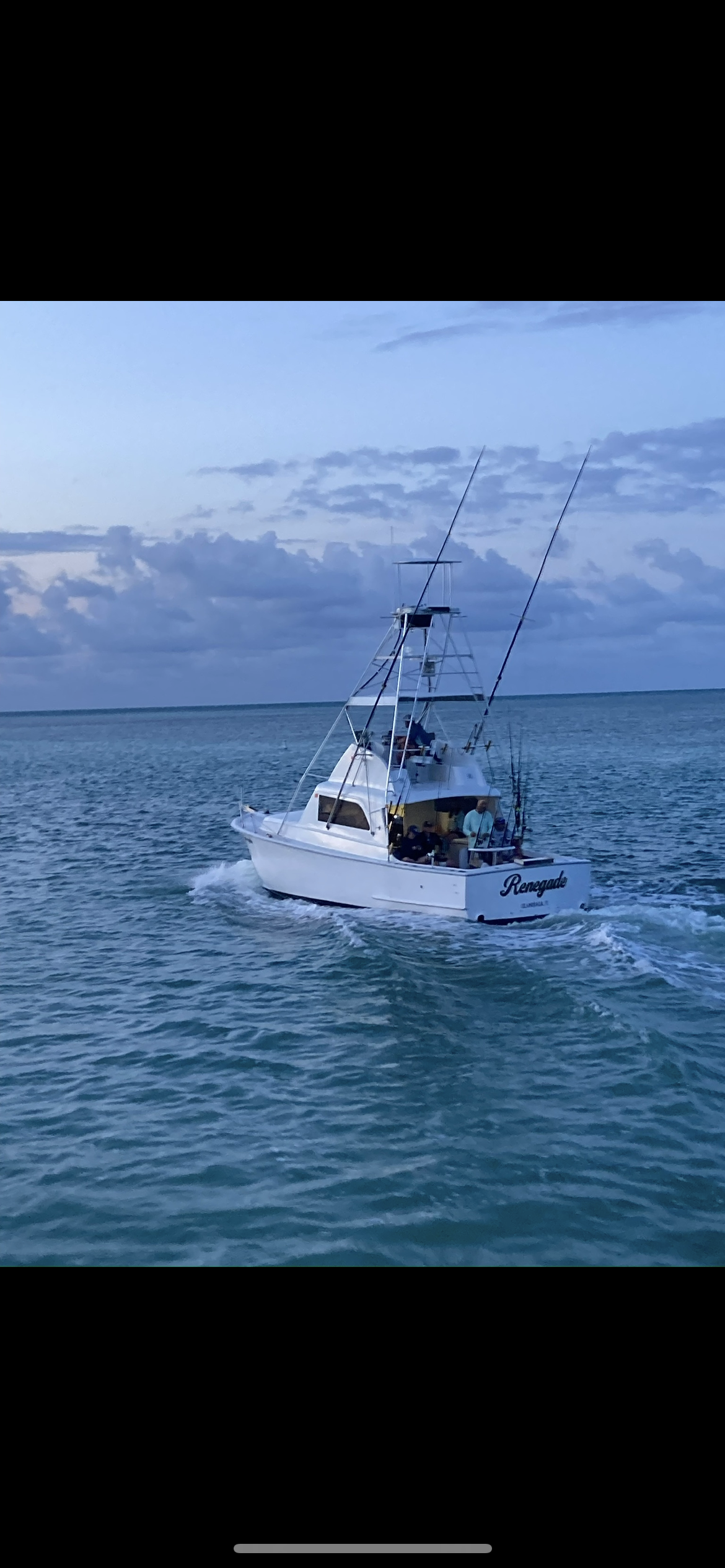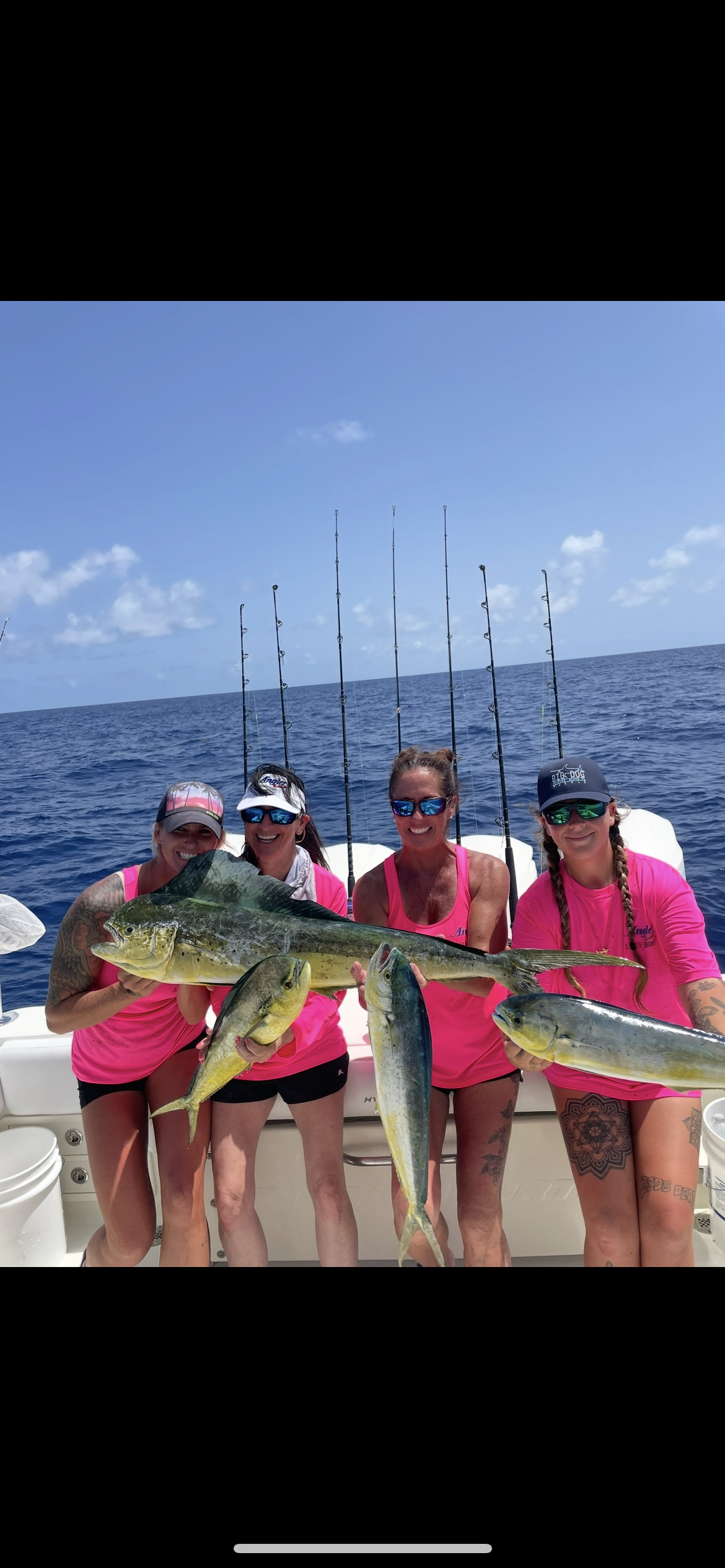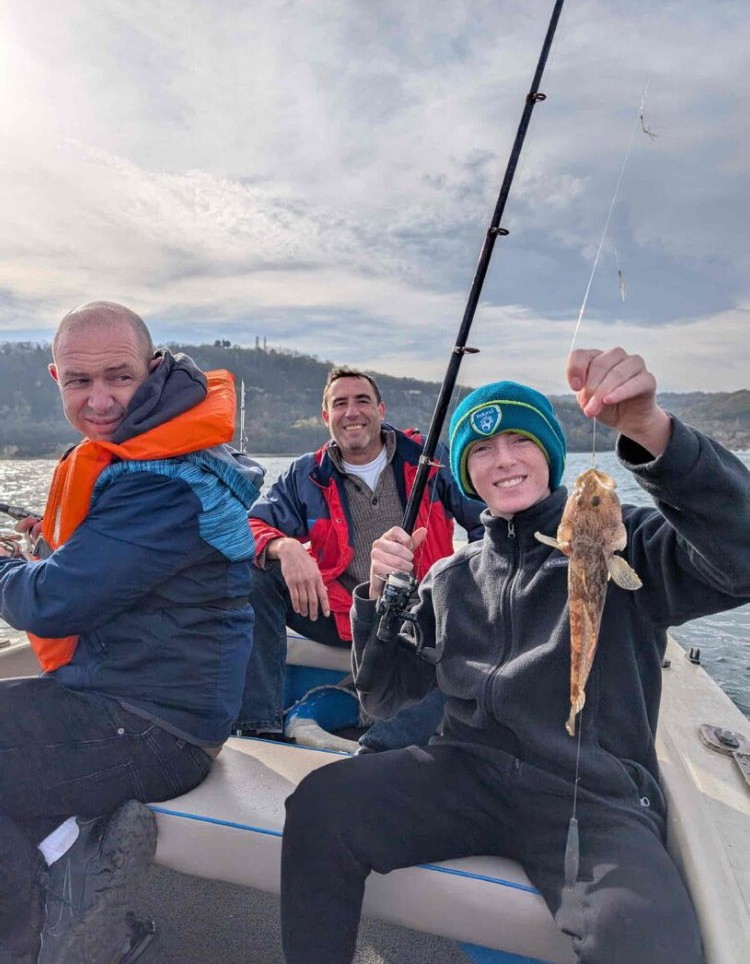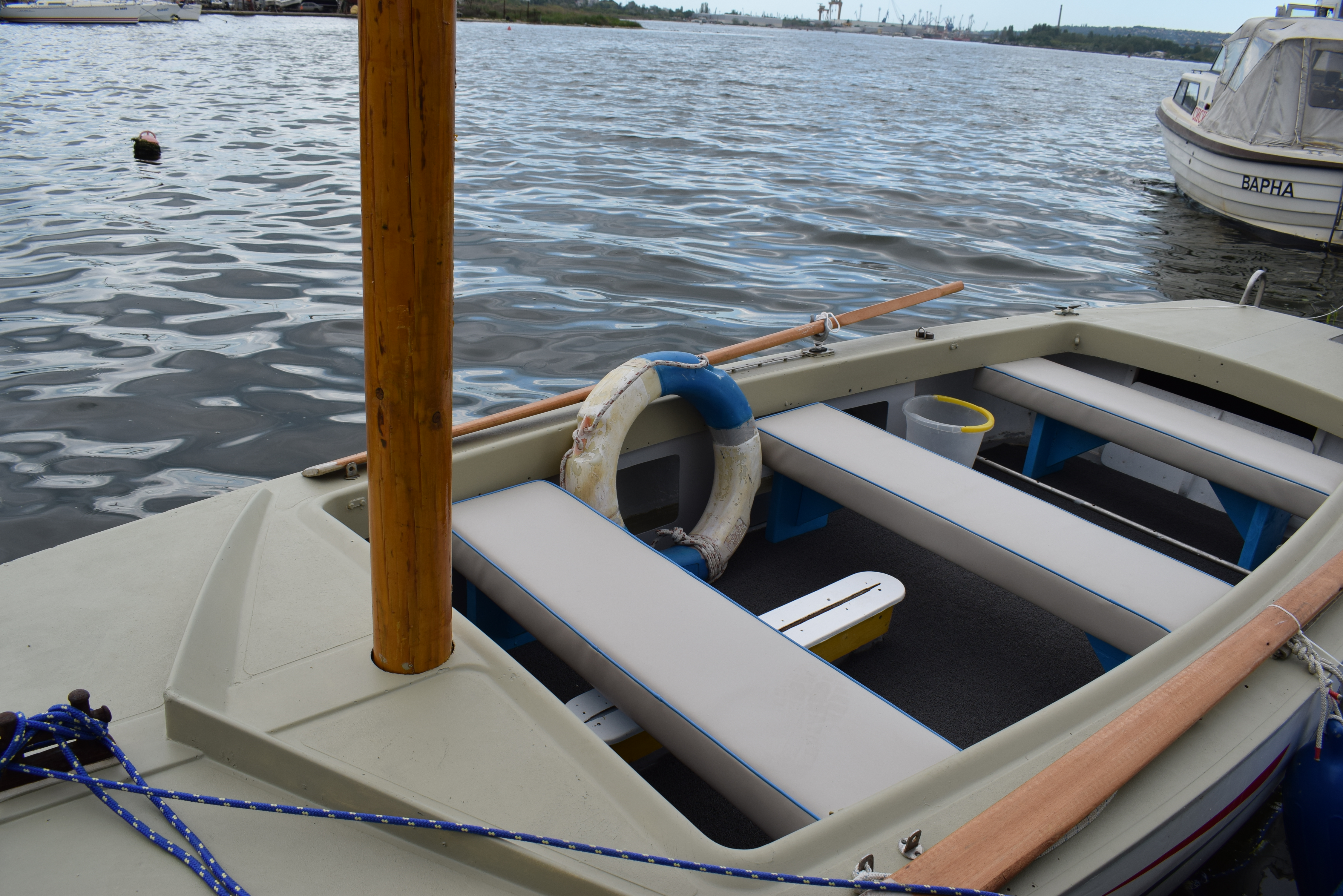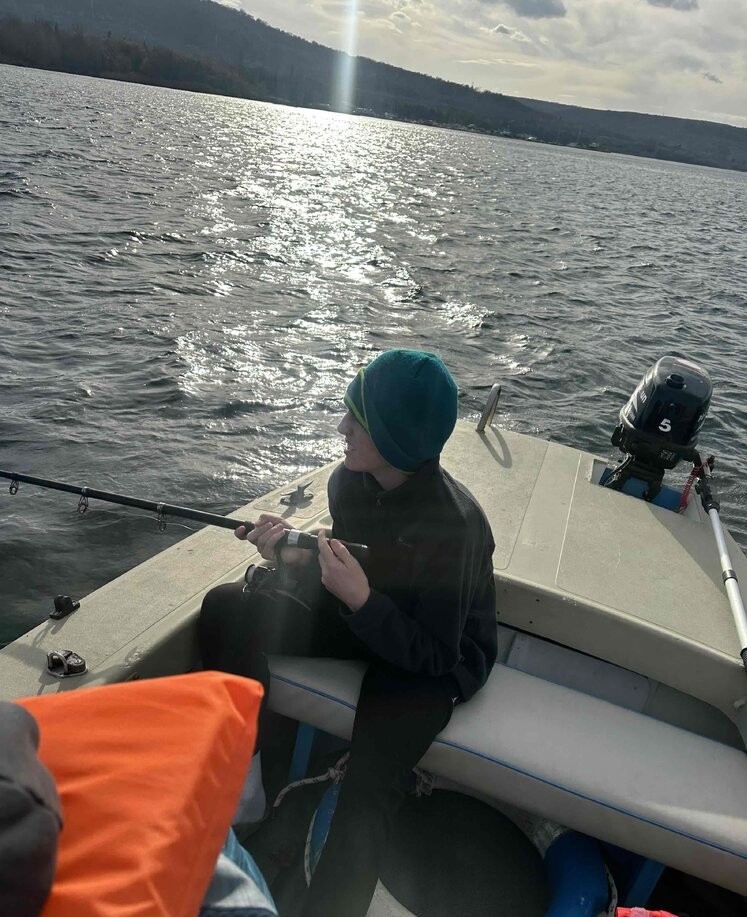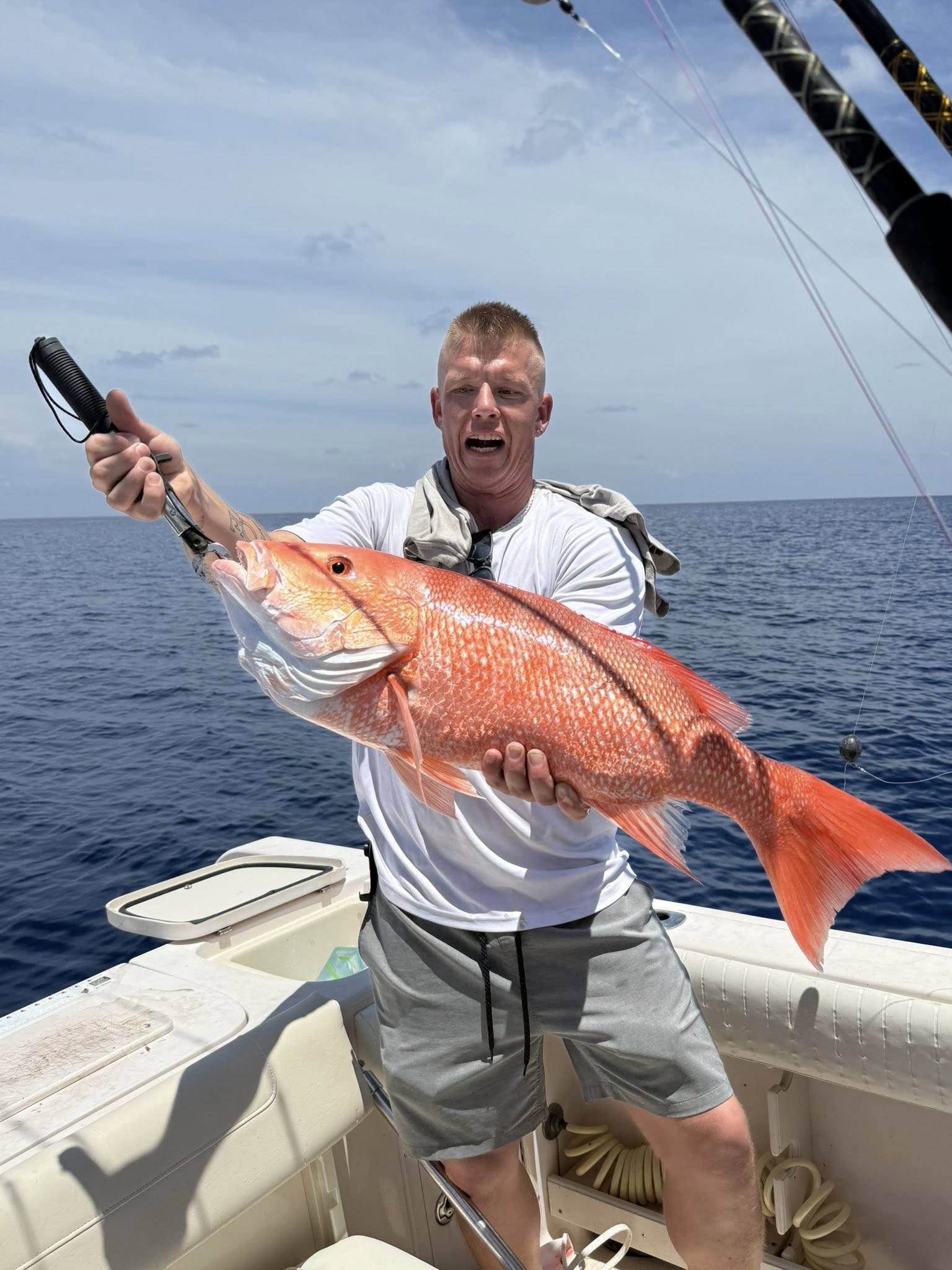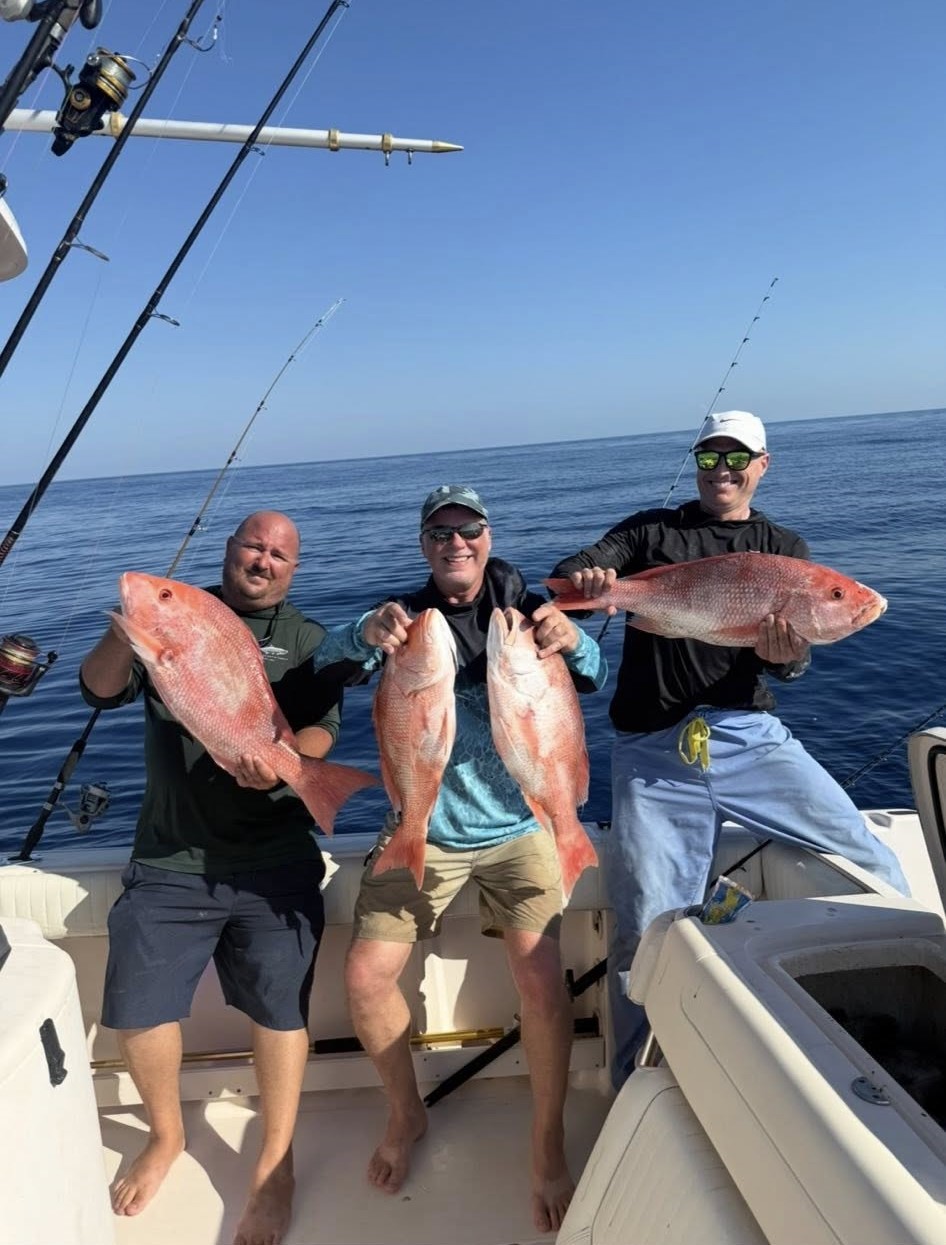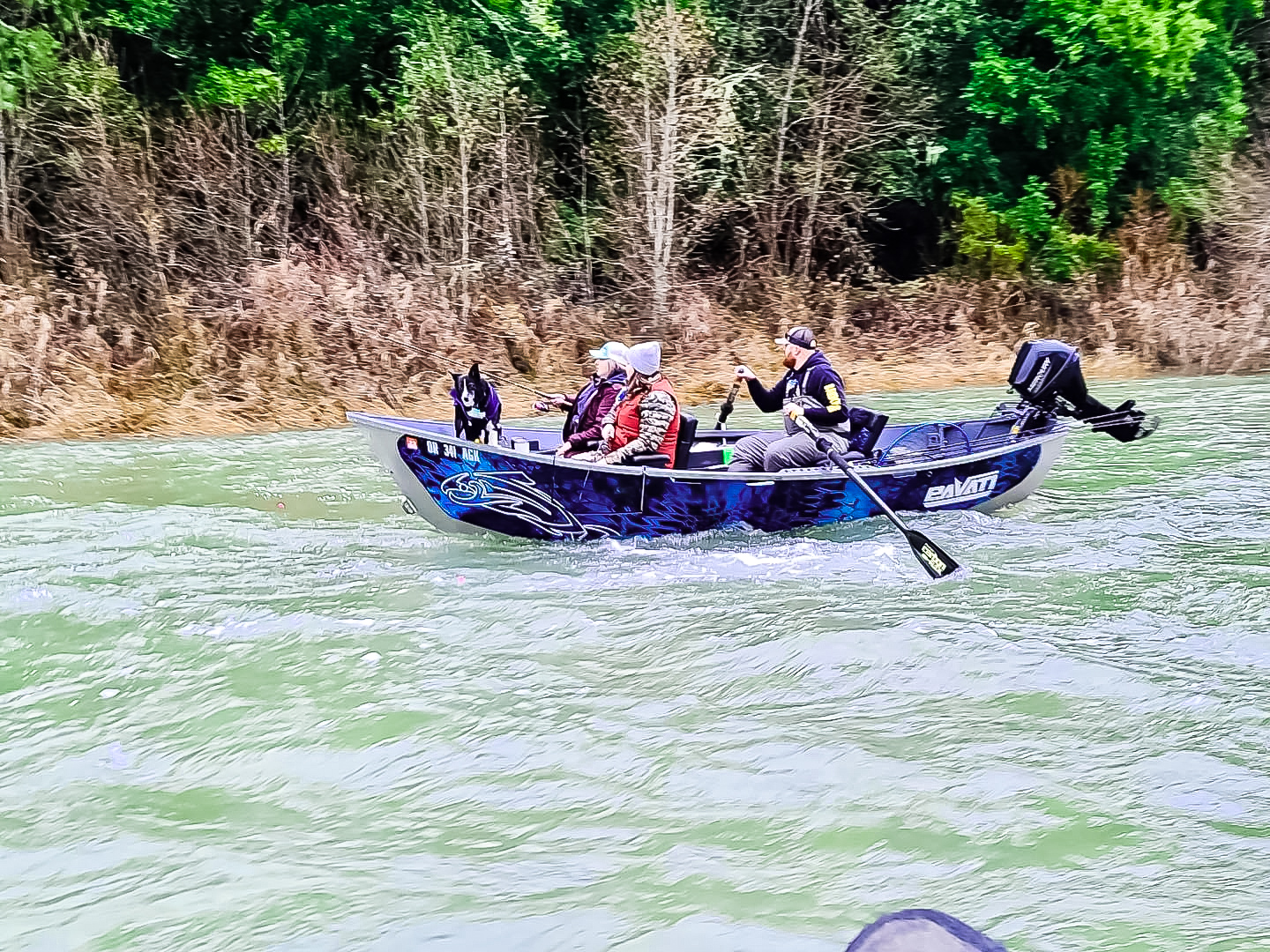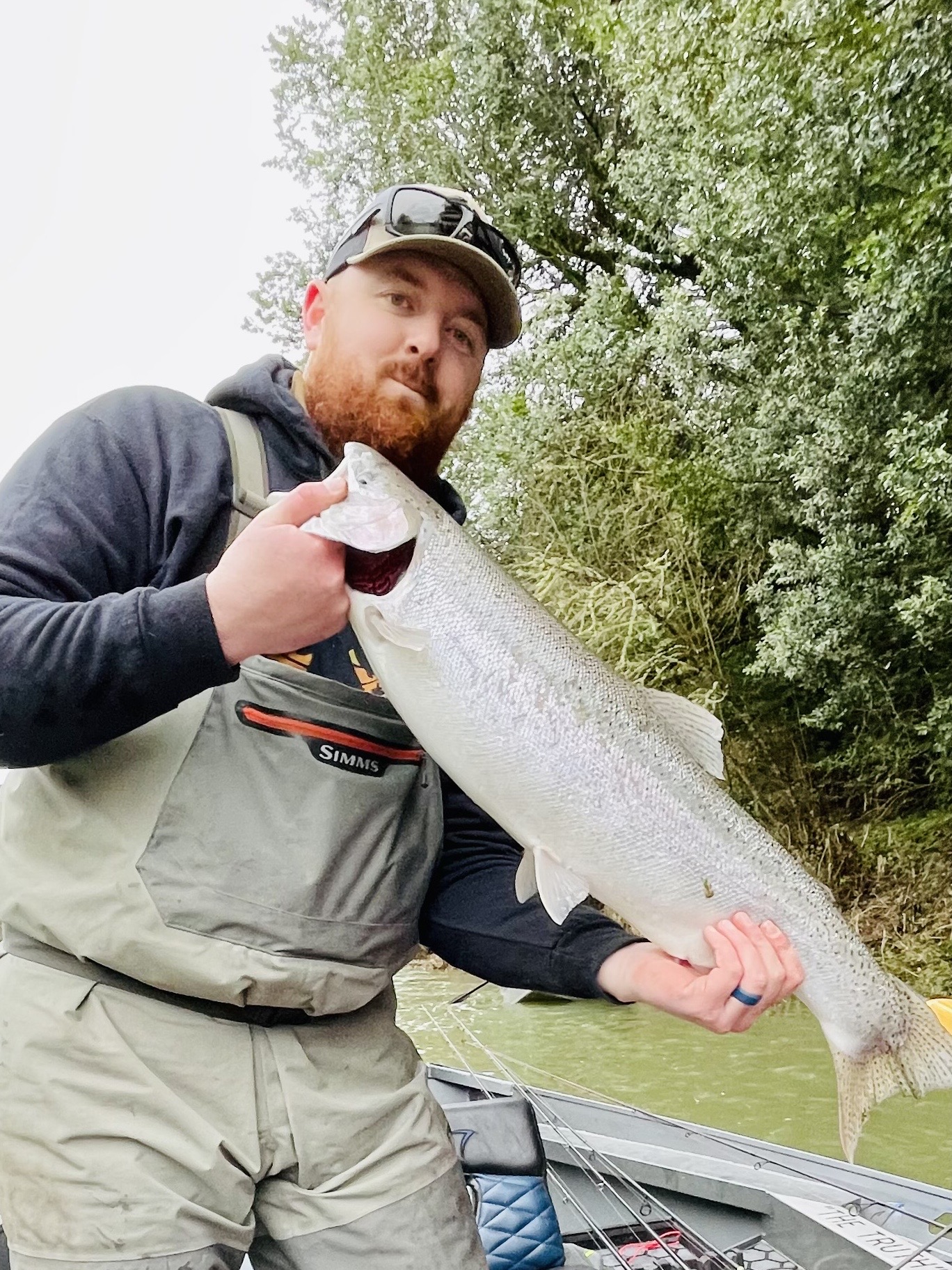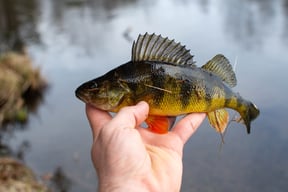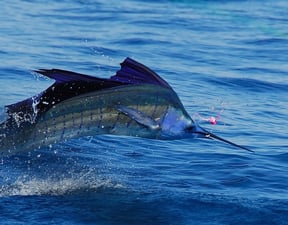Inshore, Flats Fishing in Pineland
Fly Fishing Pineland
Deep Sea Fishing in Playa Herradura
Full Day Offshore
Salmon Fishing Trip
Steelhead Fishing Trip
Deep Sea, Nearshore Fishing in Puerto Aventuras
Fishing Charter, Puerto Aventuras
Deep Sea, Nearshore Fishing in Islamorada
4 Hour Half Day
Deep Sea, Nearshore Fishing in Islamorada
6 Hour 3/4 Day
Black Sea Trips
Deep Sea, Nearshore Fishing in Sarasota
Red Snapper December Re-Open
Winter Steelhead
We started Captain Experiences to make it easy to book fishing and hunting guides around the world. With over 2,000 Damn Good Guides, our platform makes finding and booking a trip seamless. Head here to check out our trips.
Planning a Fishing Trip: Do's and Don'ts
Planning a fishing trip can be stressful, but it doesn't have to be. Captain Experiences was founded to solve the hardest parts of getting out on the water, wherever you are. This article will help ensure that you have a good time. Here’s a quick list of do’s and dont’s that will help you make the most of your time on the water.
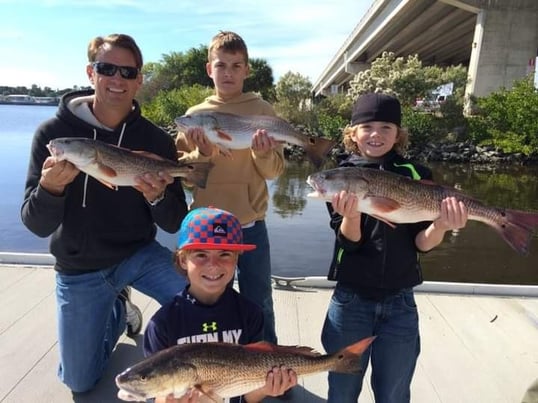
Fishing Trip Do’s:
Hire a Guide
The first thing to consider when planning a fishing trip is hiring a guide. Having an experienced guide or captain that provides the boat, gear, bait, and other essentials for catching fish takes away a lot of stress. It also allows you to spend more time enjoying the company of your friends and family while catching the fish. Especially if you are traveling somewhere new, guide’s know the water, where the fish are, and can get you on them very quickly. If you’re an experienced angler and want to put together your own trip, go for it, just be prepared for a bit more work.
Pack a Cooler
Packing a cooler is one of the most crucial parts of a fishing trip, because without water, beer, snacks, and a place to put the fish, it’s likely that people will get cranky. Pack adult beverages to keep moral high, but make sure there is room for water and snacks. If you want to make sure you have everything, check out our blog on fishing trip essentials. Staying hydrated and having some food on hand will make sure that you are in top shape when it’s your turn in the fighting chair.
Know the Rules and Regulations
Depending on the state, you might be required to purchase a fishing license. Plan on purchasing your license the day before the trip to avoid last minute panic in the early hours of the morning. Beyond your license, do a quick search and spend some time learning the rules and regulations of the area you plan to fish. While guides are good about keeping people from breaking the law, it’s ultimately up to you. Nothing is a bigger bummer than getting fined on vacation.
Fishing Trip Dont’s
Don’t Get Sunburn
Sunscreen or sunblock is a small item that can have a huge impact on your trip. Be proactive by using sunblock to avoid getting fried and suffering through the second half of the trip. A good rule of thumb is to reapply every two hours. If you’re especially prone to getting burned, get sunscreen with zinc oxide, cover up with long clothing, wear a hat, and put on sunglasses. On smaller boats, there’s almost no protection from the sun, making it nearly impossible to avoid getting burned without protection.
Don’t get Sick
For people who get seasick easily, don’t forget to bring medicine or whatever remedy works for you. While indulging in alcoholic beverages is almost tradition for a fishing trip, overindulging is dangerous—especially on a boat. Enjoy the trip, but watch out for early signs of having one too many. The best way to make sure you feel great throughout your trip is to stay hydrated, and have a light snack periodically.
Don’t Forget to Tip
When you book a fishing charter, the fees usually only cover a guide’s expenses like gas and bait because they rely heavily on tips. Guides make most of their living through tips, so make sure you bring enough cash to pay them for their efforts. The standard tip is 20%, but if you have a particularly good time, more is appreciated. Check out our blog about tipping for more information about how and when to tip your guide.
Joey Butrus
Updated on June 1, 2023
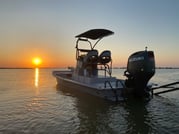
January 7, 2022

October 26, 2020
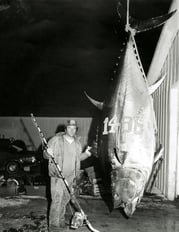
June 3, 2021
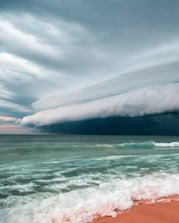
August 21, 2023
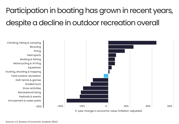
June 28, 2023
Related Articles
November 10, 2022
March 14, 2022
November 10, 2022
Featured Locations
- Fishing Charters Near Me
- Austin Fishing Guides
- Biloxi Fishing Charters
- Bradenton Fishing Charters
- Cabo San Lucas Fishing Charters
- Cancun Fishing Charters
- Cape Coral Fishing Charters
- Charleston Fishing Charters
- Clearwater Fishing Charters
- Corpus Christi Fishing Charters
- Crystal River Fishing Charters
- Dauphin Island Fishing Charters
- Daytona Beach Fishing Charters
- Destin Fishing Charters
- Fort Lauderdale Fishing Charters
- Fort Myers Fishing Charters
- Fort Walton Beach Fishing Charters
- Galveston Fishing Charters
- Gulf Shores Fishing Charters
- Hatteras Fishing Charters
- Hilton Head Fishing Charters
- Islamorada Fishing Charters
- Jacksonville Fishing Charters
- Jupiter Fishing Charters
- Key Largo Fishing Charters
- Key West Fishing Charters
- Kona Fishing Charters
- Lakeside Marblehead Fishing Charters
- Marathon Fishing Charters
- Marco Island Fishing Charters
- Miami Fishing Charters
- Montauk Fishing Charters
- Morehead City Fishing Charters
- Naples Fishing Charters
- New Orleans Fishing Charters
- New Smyrna Beach Fishing Charters
- Ocean City Fishing Charters
- Orange Beach Fishing Charters
- Panama City Beach Fishing Charters
- Pensacola Fishing Charters
- Pompano Beach Fishing Charters
- Port Aransas Fishing Charters
- Port Orange Fishing Charters
- Rockport Fishing Charters
- San Diego Fishing Charters
- San Juan Fishing Charters
- Sarasota Fishing Charters
- South Padre Island Fishing Charters
- St. Augustine Fishing Charters
- St. Petersburg Fishing Charters
- Tampa Fishing Charters
- Tarpon Springs Fishing Charters
- Venice Fishing Charters
- Virginia Beach Fishing Charters
- West Palm Beach Fishing Charters
- Wilmington Fishing Charters
- Wrightsville Beach Fishing Charters


